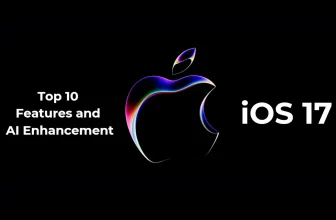Starlink in India: Issues, Affordability and Advantages Explained
Elon Musk’s ambitious plan to introduce Starlink satellite broadband in India promises a transformative impact on the general population, offering affordable connectivity and enhanced features. While facing resistance from Mukesh Ambani’s Reliance Jio, the potential benefits of Starlink cannot be overlooked.
Highlights:
- Starlink aims to bridge the digital divide by providing high-speed internet access to remote areas in India.
- Starlink faces a dispute with Reliance over spectrum distribution, auction versus license assignment.
- Starlink offers cost-effective, high-speed connectivity with extensive coverage, benefiting remote areas in India.

Following a recent meeting with Indian Prime Minister Narendra Modi in the United States, Elon Musk expressed his eagerness to launch Starlink in India, highlighting its potential to provide high-speed internet access to remote villages currently lacking such services. However, what Musk failed to address publicly is the brewing dispute between Starlink and Reliance over the government’s method of distributing the satellite broadband spectrum.
Starlink has been lobbying the Indian government to refrain from conducting an auction for the spectrum and instead assign licenses in line with global trends. The company argues that the spectrum is a natural resource that should be shared by all interested companies. According to Starlink’s letters, made public by the Indian government, an auction could impose geographical restrictions that would significantly increase costs.
On the other hand, Reliance Jio disagrees with Starlink’s stance and has publicly called for an auction of the spectrum. The company asserts that foreign satellite service providers should be allowed to offer voice and data services, thereby fostering healthy competition with traditional telecom players. Reliance Jio believes that conducting an auction would ensure a level playing field for all participants.
According to an industry source with direct knowledge, Reliance is determined to continue advocating for an auction of the satellite spectrum and rejecting the demands put forth by foreign companies. The rivalry between Reliance and Starlink appears to be deepening as both sides stand their ground.
For Elon Musk, the stakes are undeniably high. His previous attempt to launch Starlink in India in 2021 faced regulatory hurdles due to operating without a license, and he is currently engaged in discussions with the Indian government to establish a Tesla factory. Gaining approval for Starlink would not only pave the way for bringing satellite broadband services to India but also strengthen Musk’s overall position in the country.
On the other hand, a victory for Mukesh Ambani in keeping foreign competition at bay in the satellite broadband sector would be another significant achievement for Reliance Jio. With a user base of 439 million telecom subscribers and a 25% market share in wired broadband connections, Reliance Jio already stands as the market leader in India.
Starlink’s perspective on the auction issue finds support from Amazon’s satellite internet initiative, Project Kuiper, and the British government-backed OneWeb. However, both Amazon and the Telecom Regulatory Authority of India declined to comment on the matter, and SpaceX, the parent company of Starlink, did not respond to inquiries.
When asked for comment, Reliance referred Reuters to its own and Starlink’s government submissions, emphasizing the ongoing nature of the dispute and the need for further examination.
As the battle for satellite broadband services unfolds in India, the outcome will not only determine the future of Starlink’s operations in the country but also shape the landscape of India’s telecom industry. The clash between two of the world’s richest individuals adds an additional layer of intrigue to this high-stakes struggle, captivating the attention of both industry insiders and the general public alike.
What does Starlink means to India in terms of Impact and Advantages
Starlink’s satellite broadband service aims to bridge the digital divide by providing high-speed internet access to remote villages and areas currently lacking connectivity. Musk, during a recent meeting with Indian Prime Minister Narendra Modi, emphasized the potential of Starlink to be “incredibly helpful” in such locations.
One of the key advantages that Starlink brings to the table is its cost-effectiveness. By leveraging a satellite network, Starlink can offer competitive pricing for its broadband services. This is particularly significant in India, where affordability plays a crucial role in expanding internet access across the country.
Additionally, Starlink’s low-latency broadband services provide a significant improvement in internet speeds, enabling users to enjoy seamless online experiences, including video streaming, online gaming, and video conferencing. This technology holds the potential to revolutionize various sectors, such as education, healthcare, and business, by facilitating seamless digital interactions.
Compared to traditional wired broadband connections, Starlink’s satellite-based approach offers a distinct advantage in terms of coverage. Remote areas with challenging geographical terrains or limited infrastructure can benefit from Starlink’s ability to deliver internet access directly from satellites orbiting the Earth. This eliminates the need for extensive infrastructure development and allows for rapid deployment of connectivity services.
By providing affordable and reliable internet connectivity, Starlink has the potential to bridge the digital divide, empower individuals and communities, and stimulate socio-economic growth. Becauase as the debate over satellite broadband spectrum continues, it is crucial for all stakeholders to consider the long-term advantages that Starlink brings to India.
The affordability, enhanced features, and extensive coverage offered by Starlink’s satellite broadband services hold the potential to revolutionize internet connectivity in the country, transforming lives, businesses, and communities across the nation.







